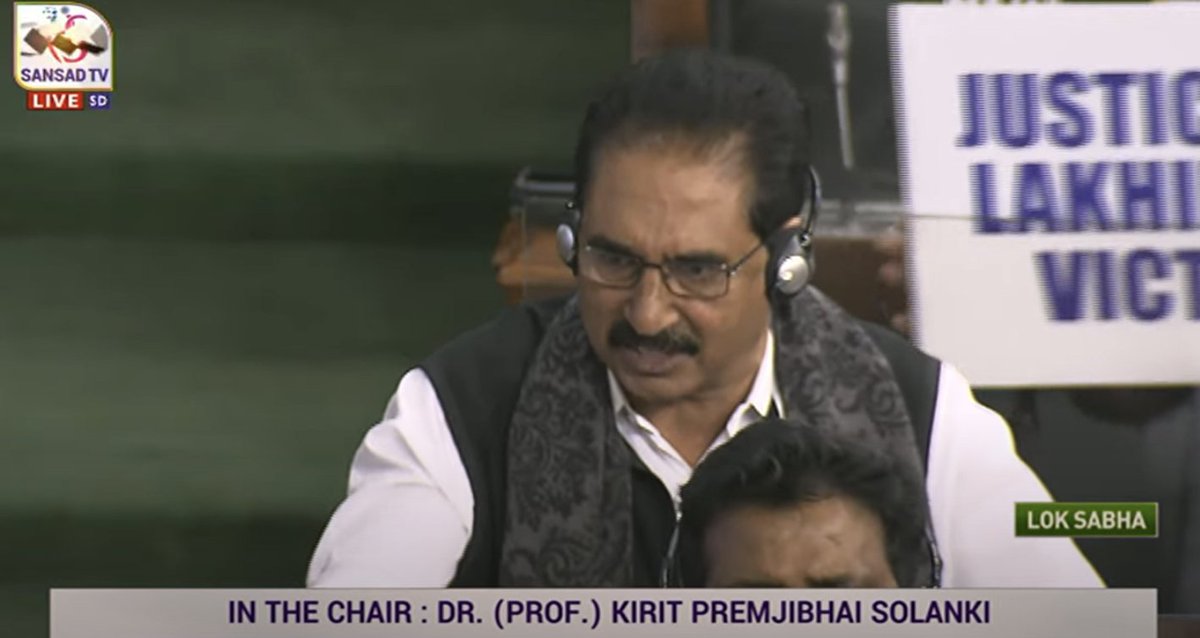N.K. Premchandran stated that in the morning he opposed introduction on constitutional grounds, now he is opposing it on procedural grounds for passage. MPs are not even getting a chance to propose amendments. “What is parliamentary democracy? What is the use of debate” 8/n 

E. T. Mohammed Basheer states that he opposes the Aadhaar-Voter ID linkage bill… focuses on the procedure, “that this is a shame… it is not had in the history of legislature…”. 9/n 

Kiren Rijiju responds that he desired calm discussion on this important Bill but opposition has responded by creating a ruckus. The Bill is important for electoral reforms and refuses reference to parliamentary committee stating such examination has already been done. 10/n 

Kiren Rijiju is citing the findings of the Standing Committee on Law in support of his submission that the law is not of the Government’s own initiative. 11/n
business-standard.com/article/pti-st…
business-standard.com/article/pti-st…
Kiren Rijiju continues response on the objections premises on the fundamental right to privacy judgement. Now reading the Puttaswamy judgement stating that legality, necessity and proportionality is justified. 12/n 

Voting now proceeding as directed by the Chair by Dr. Kirit Prejibhai Solanki. Notes that the Election Law (Amendment) Bill, 2021 has been passed by voice vote. 13/n 



TBC : The Election Law (Amendment) Bill, 2021 has been passed in the Lok Sabha on the same day it was introduced. All eyes now on the Rajya Sabha. We must remain vigilant. 14/14
Addendum : Important documents
1. The Election Law (Amendment) Bill, 2021 drive.google.com/file/d/1LhE1gG…
2. 105th report of the Standing Committee on Personnel, Public Grievances et al. drive.google.com/file/d/1ZvvLIN…
1. The Election Law (Amendment) Bill, 2021 drive.google.com/file/d/1LhE1gG…
2. 105th report of the Standing Committee on Personnel, Public Grievances et al. drive.google.com/file/d/1ZvvLIN…
• • •
Missing some Tweet in this thread? You can try to
force a refresh






